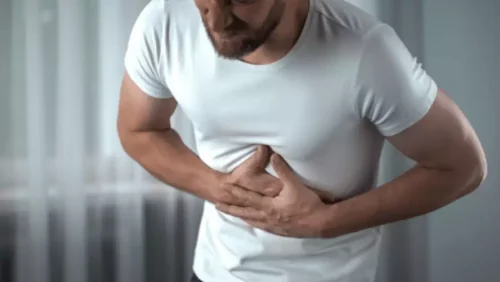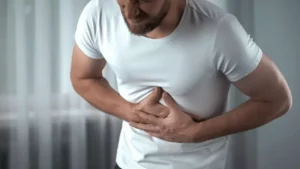Alcohol Abuse Statistics

Alcohol abuse stats demonstrate that the cost of overconsumption is something we all pay for. The CDC estimates that excessive drinking costs drug addiction the United States at least $249 billion annually, according to data from 2010, the most recent information available. Much of that cost is related to health care expenses, lost productivity, criminal justice and motor vehicle accidents.
A Comparative Study of Factors Associated with Relapse in Alcohol Dependence and Opioid Dependence
The evaluation consists of 11 yes or no questions that are intended to be used as an informational tool to assess the severity and probability of a substance use disorder. The test is free, confidential, and no personal information is needed to receive the result. A better approach, however, involves judging the actual quality of care a facility provides—during and after the formal treatment period. Here are some key statistics that shed light on how often relapse occurs to help you understand the true scope of this challenge. Many of our team members are graduates themselves who understand what you are going through.
Chronic Substance Use, Stress, and Associated Subjective and Behavioral Changes
Overall, among people sober for five years, the chances of relapsing alcohol relapse statistics are less than 15%, according to Psychology Today. If you’ve been in treatment before, it may also help to reach out to alumni programs (if any) for resources. Many alumni programs, such as those offered by American Addiction Centers (AAC), host peer gatherings and can connect you with addiction aftercare services.

Links to NCBI Databases
If you or someone you love is experiencing alcohol addiction or relapse, Tree House Recovery can help. Talk to our admissions team today to assess the best level of care for your unique needs, and learn long-term prevention skills to help you regain your power. 34% of all Americans with an alcohol use disorder will have an least one or more physical relapses during the process of recovering from alcohol abuse disorder. 69% of all Americans with an alcohol use disorder will have an least one emotional relapse during the process of recovering from alcohol abuse disorder.

What Percentage of Alcoholics Recover and Stay Sober?
Preparation of this manuscript was supported in part by NIAAA grant AA12718 and by the Department of Veterans Affairs Health Services Research and Development Service. We thank Bianca Frogner, Ilana Mabel and Christine Stansbury for their help in data collection and Mark Ilgen, John McKellar, Kathleen Schutte and Christine Timko for their helpful comments on an earlier draft of the manuscript. Opinions expressed herein are those of the authors and do not necessarily represent the views of the Department of Veterans Affairs. Reps can discuss treatment and aftercare options; plus, they can verify any insurance you have (or you can verify benefits online).
Healthy Lifestyle
Managing and regulating your alcohol intake can be extremely difficult when you are trying to recover from an addiction. Choosing moderation means that you will continue to drink alcohol but with strict limits placed on your consumption of this substance. It just means that you may still be holding on to behaviours and patterns that are unhealthy and that you may need to tweak your recovery plan. But even with the best of intentions, you may not react to each situation perfectly and may experience one or more relapses. When someone relapses, they return to the behaviours that they have been attempting to avoid. Experiencing a relapse can be disheartening, but it’s important to approach the situation with resilience and a commitment to getting back on track.

How do behavioral therapies treat drug addiction?
If the relapse involves heavy drinking, it could lead to dangerous withdrawal symptoms, in which case medical detox may be necessary. Additionally, if you haven’t completed rehab, going back to treatment can provide you with better tools for long-term sobriety. Relapse is a common challenge in the recovery journey, but it doesn’t mean the end of your progress. Understanding alcohol relapse rates and taking proactive steps can help you stay on track.

- 6.9% of all American men with an alcohol use disorder have had treatment for it in the past year.
- A large amount of research has been conducted on alcohol addiction treatment, relapse rates and abstinence.
- As with anything, the more you work at it and the longer you work, the better you’ll be at avoiding a potential relapse.
If you relapse, the best thing you can do is take immediate action to regain control. It is essential to assess the cause of relapse, identify what you can change to avoid relapse and adapt to achieve your recovery goals. However, studies have suggested that three stages of alcohol relapse happen gradually. 24% of all Americans over the age of 50 with an alcohol use disorder were able to attain a long term recovery. 25% of all Americans over the age of 40 with an alcohol use disorder were able to attain a long term recovery.

Research on the science of addiction and the treatment of substance use disorders has led to the development of research-based methods that help people to stop using drugs and resume productive lives, also known as being in recovery. Although there is limited data on the success rates of alcohol addiction treatment programs, research shows that factors like treatment length, therapy variety, and the quality of therapists, counselors, and educators can impact a program’s success. 62% of all Americans with an alcohol use disorder will have an least one or more mental relapses during the process of recovering from alcohol abuse disorder. 66% of all people in the United States who have been treated for alcohol use disorder will have at least one or more relapses in the year after they’ve completed substance abuse treatment. A priority for future research is to find out why individuals who recognize their alcohol problems and initiate help seeking do not obtain timely help. Access to convenient, low intensity interventions 58 could enhance the self-change process and enable such individuals to achieve and maintain remission.
What Percentage Of Alcoholics Relapse?
If you or someone you know is experiencing challenges with alcohol, don’t wait to seek help. If you or a loved one is experiencing relapse, addiction recovery programs can help. Relapse prevention strategies aim to identify and address potential triggers, enhance coping skills, and create a plan to navigate challenging situations without resorting to substance use. The likelihood of relapse can differ based on the specific substance that was being abused. Some substances, such as opioids, have a higher relapse potential due to their addictive nature. The likelihood of relapse differs based on the specific substance being abused.